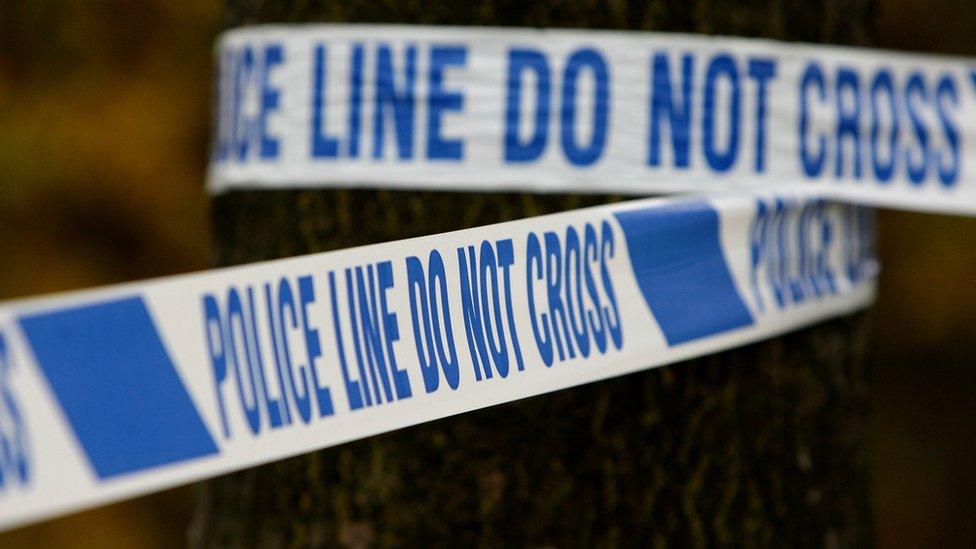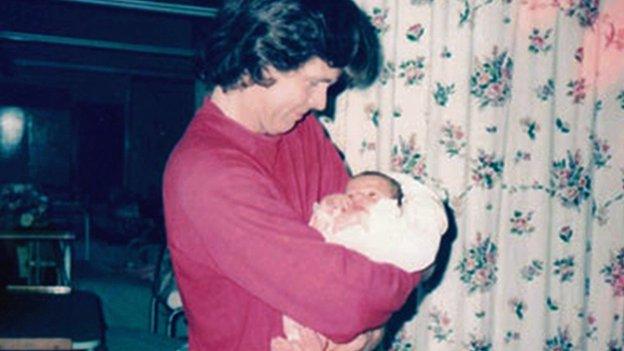PC used dead child's name to join activists, documents show
- Published

A policeman who used a dead child's identity to infiltrate a protest group in the 1970s was thrown out when his cover was blown, police documents show.
The officer, who has since died, used the name Rick Gibson to join Liverpool-based activist group Big Flame.
In 1976, "Rick" was forced out of the group amid a "tirade of abuse" after members apparently found birth and death records for the real Mr Gibson.
The details were released by a judge-led inquiry into undercover policing.
The Undercover Policing Inquiry, external is being led by Sir John Mitting. It was previously led by Sir Christopher Pitchford, who has now retired.
For two years it has reported on undercover police operations conducted by police forces in England and Wales since 1968.
In this case, the officer had tried to explain to campaigners that he adopted a pseudonym to "avoid detection and arrest" because he was "wanted" by police.
"No violence was used, but he was expelled from the group after a lengthy tirade of abuse," a Metropolitan Police risk assessment compiled for the inquiry said.
Big Flame, which described itself as a "revolutionary socialist feminist organisation", was set up in 1970 but had largely disbanded by the mid-1980s.
After the incident, the policeman was withdrawn as an undercover officer in the Special Demonstration Squad - the secretive Met unit responsible for infiltrating protest groups.
Large-scale disorder
The document included details of three officers who used cover names, revealed by the inquiry after the Met decided not to oppose their disclosure.
One undercover officer used the pseudonym Douglas Edwards, and was deployed to gather information on the Independent Labour Party and the left-wing groups, Tri-Continental and the Dambusters Mobilising Committee.
The document said the government was concerned about the risk of "large-scale public disorder" and that the officer, who was deployed between 1968 and 1971, posed as a "long-distance lorry driver".
In a personal statement, the second policeman, who has since retired and did not want his real name to be revealed, said he was initially told to report on anarchist groups.
"Some of them were quite nasty pieces of work," he wrote.
He said problems linked to undercover policing were "blown out of all proportion", but added: "Other people have fathered children and you can't have that."
In 2014, the Met paid £425,000 in compensation to a woman who did not know the father of her child was an undercover officer, Bob Lambert, who was using the pseudonym Bob Robinson.
A third policeman, whose cover name was John Graham, reported on the Vietnam Solidarity Campaign in the late 1960s.
In his statement, he said: "I regarded the people I was with as intellectuals.
"They were just people who believed that the Americans shouldn't be in Vietnam but had no idea how to get them out."
The officer, who also gathered information on the Revolutionary Socialist Students Federation, grew a beard and was said to have been "scruffier" than his colleagues.
- Published24 October 2014

- Published24 October 2014